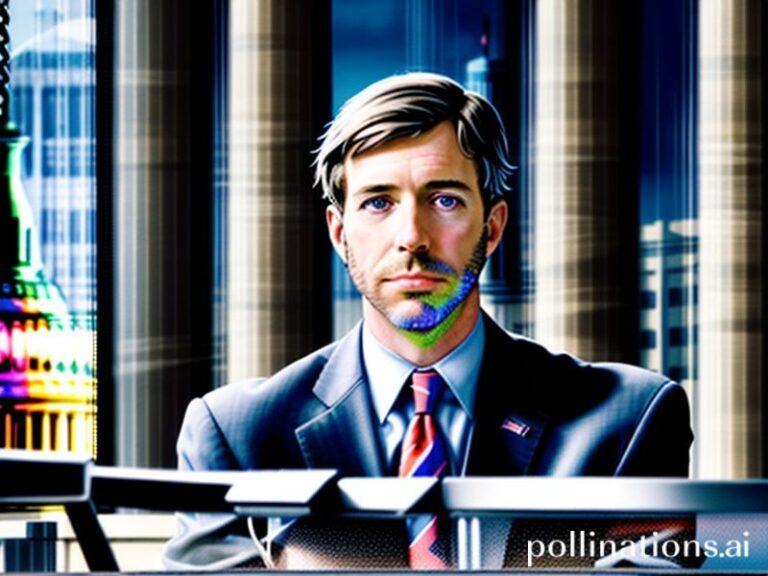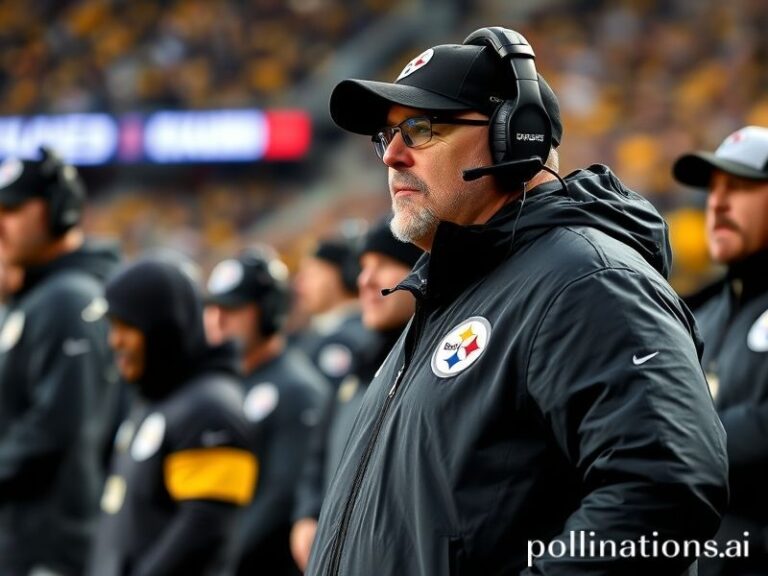Conor Chaplin: The Accidental Prophet of a Planet Addicted to Hope and Highlight Reels
THE QUIET MAN WHO SOLD THE WORLD A GOAL: CONOR CHAPLIN AND THE GLOBAL PONZI SCHEME OF HOPE
Dateline: Somewhere between the Suffolk fens and the fever dreams of Premier League scouts—where the air smells faintly of wet grass, stale lager, and the desperation of 27 million YouTube highlight reels.
Conor Chaplin, age 27, currently drawing a modest wage at Ipswich Town FC, is the latest ledger entry in the planet’s most profitable speculative bubble: the footballer futures market. While Wall Street debates whether AI will replace your accountant, the real money is being wagered on whether a 5-foot-8 Englishman can keep curling 20-yard daisies past Championship goalkeepers before his hamstrings file for early retirement. Call it crypto with shin pads.
From Jakarta to Jackson, Wyoming, the myth machine hums. Indonesian streamers clip Chaplin’s half-volleys into TikToks overlaid with K-pop beats; a hedge-fund quant in Connecticut feeds those same clips into a sentiment-analysis model that spits out “buy” signals for whatever third-party betting exchange is legal this week in Delaware. The result? A circular economy of delusion in which a single goal against Huddersfield becomes a butterfly wing causing margin calls in Macau.
Of course, the lad himself remains almost insultingly grounded. Interviews reveal a polite, slightly startled creature who still refers to his mother as “mum” and apologizes when swearing. He is, in other words, the perfect foil for an international audience that likes its idols humble and its narratives rags-to-riches—preferably compressed into a 90-second reel with inspirational piano. The darker joke is that humility sells better than arrogance these days; nothing spikes jersey sales like the illusion that your star might actually be one of us, if only we had spent more time in the academy instead of the kebab shop.
Meanwhile, the geopolitical ripples spread. A Singaporean sovereign-wealth fund quietly increases its stake in Ipswich Town’s holding company, citing “undervalued human capital.” Somewhere in a Moscow suburb, a teenage Twitch streamer changes his gamertag to “Chaplin10x,” ensuring at least three confused Finnish teammates. Even the war correspondents take note: during a brief cease-fire in Kharkiv, a Ukrainian forward on leave posts an Instagram story comparing his free-kick technique to Chaplin’s, adding a prayer-hands emoji that garners 40,000 likes before the signal cuts out.
Back in England, the tabloids oscillate between canonization and vivisection. One week Chaplin is “the Suffolk Iniesta,” the next he’s “a luxury player who flatters to deceive,” a phrase that sounds suspiciously like the reviewer’s last Tinder date. The cycle is as predictable as a North Korean missile launch, and twice as profitable. Every sensational headline is another micro-dose of hope for fans who can’t afford season tickets but can still afford despair.
Economists call this “emotional leverage”: the ability to collateralize collective yearning into broadcast rights, betting slips, and NFTs of digitally enhanced thigh muscles. Chaplin, still renting a terraced house near Portman Road, is technically the face on the note, but the currency itself is minted elsewhere—in server farms, offshore sportsbooks, and the algorithmic id of global late-capitalism. If he tears an ACL tomorrow, the market will shrug, pivot to the next 19-year-old Paraguayan, and keep the line moving. The cruelty is elegant: even failure is securitized.
And yet, when the floodlights come on and the roar compresses into that singular, primitive growl, the cynicism evaporates—for ninety minutes at least. A perfectly weighted through-ball splits two defenders, Chaplin arrives late, side-foots home, and 300 million people exhale at once. For a heartbeat, the bubble feels like a community rather than a con. Then the replays roll, the betting apps refresh, and the world returns to its default programming: buy low, sell high, hope dies last but it still dies.
There you have it. One man, one foot, one fragile planet trading on the promise that maybe—just maybe—the ball will nestle in the net again next Saturday. If that isn’t the story of our times, I don’t know what is.







